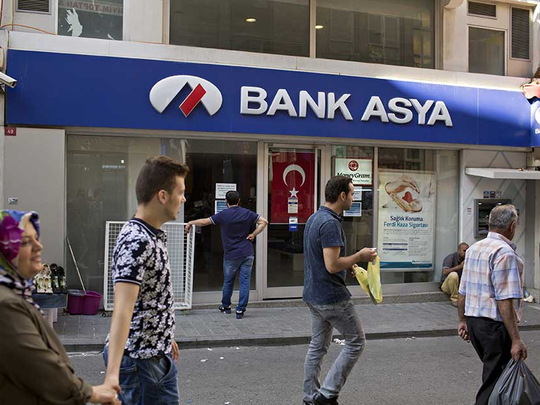
Dubai/Ankara: Aiming to limit the economic fallout from this month’s failed coup, Turkish Prime Minister Binali Yildirim ruled out early elections and said the government plans a multibillion-dollar infrastructure fund to keep growth on track.
In an interview Sunday, he said the purges of those allegedly implicated in the putsch, which have spread concerns that President Recep Tayyip Erdogan was taking advantage of the upheaval to neutralise opponents, are nearing an end.
“Here is what we are telling global investors: Life is back to normal in Turkey,” Yildirim said, speaking at his official residence in Ankara.
For a QuickTake explainer of the events in Turkey, click here.
The failed attempt July 15 by military officers to seize power, which left about 250 dead, shocked markets, drove the currency to a record low and sent stock prices down more than 13 per cent. Sweeping purges of those accused of complicity have reached far beyond the military, with educators and corporate executives also removed from their positions. A total of 13,165 people were detained on suspicions of involvement in the plot or links to Fethullah Gulen, the US-based Islamic cleric that the government has blamed for inciting the uprising. Gulen has denied any involvement.
‘Wealth-Management Fund’
The economic impact of the upheaval has been limited mainly to financial markets and a downgrade of Turkey’s credit rating by S&P Global Ratings. Moody’s Investors Service has put the country’s debt on review for a possible downgrade.
Morgan Stanley said in a report on Monday that while their base case is for Turkey to keep its rating, “we believe that it is now a very close call.”
Markets are showing some signs of recovery. Bonds rose and the stock market was little changed Friday after falling through the week.
“It has not been a devastating effect,” Yildirim said, noting the government is committed to keep strong growth on track. He provided few details on the new “wealth-management fund,” beyond saying it would be worth “tens of billions of dollars” and would not threaten the country’s low budget deficit.
Click here to watch an excerpt of Yildirim’s interview with Bloomberg.
“It’s a structure that will finance large-scale projects,” he said. “We are going to finance investments through this fund instead of the general budget.” In 2013, the government considered using money earmarked for future unemployment benefits to create a fund for strategic projects, but that plan didn’t get off the ground.
This time, the government also expects Turkish banks to play a role in keeping growth strong, he said.
“Our banks will shift to a mentality of loans directed towards economic growth without capitulating on their lending criteria,” Yildirim said. “If necessary, preferential interest rates will be applied to investments in priority areas, while the difference will be paid for by the state’s loan-guarantee fund.”
No ‘Ambush Elections’
Turkey’s economy, the largest in the Middle East, has consistently beaten estimates since the end of 2014, powered in large part by consumer spending owing to millions of refugees displaced by the civil war in Syria. The economy grew 4.8 per cent in the first quarter of this year and 5.7 per cent during the preceding three months, the fastest expansion among the G20 top economies after China and India, according to data compiled by Bloomberg.
Yildirim, 61 years old, took office two months ago. He said what he called “ambush elections” would only cloud the outlook, adding that the next poll would be held as scheduled in 2019.
“We have no time to lose with an election,” he said. “For us, an election means slowing down the economy, reducing visibility and halting plans of the government for the future.”
Erdogan’s AK Party lacks the votes needed in parliament to make constitutional changes to impose a presidential system that would give him greater control. Many observers had expected him to take advantage of the surge in popularity he’s enjoyed since the failure of the coup to seek early elections and more support in parliament.
“Under the presidential system, there would be no one attempting such an adventure,” Yildirim said, referring to the failed coup. “Because then an absolute political will would be in charge.”
Turkish lira beats emerging peers as stocks rise most in world
The lira climbed the most in emerging markets and almost every member on Turkey’s main stock index gained after Prime Minister Binali Yildirim said the government plans to set up a multibillion-dollar fund to support economic growth. The lira increased 1 per cent, the most among 24 emerging-market currencies tracked by Bloomberg, to 3.0344 per dollar. The Borsa Istanbul 100 Index, which outperformed 30 gauges worldwide, rose 2.2 per cent as of 10.58am in Istanbul as 97 members advanced, the most since February on a closing basis. The lira depreciated to a record low against the dollar last week and the worst equity sell-off since 2008 wiped out about $36 billion from the stock market as investors fretted over the fallout of an attempted coup.
-Bloomberg












